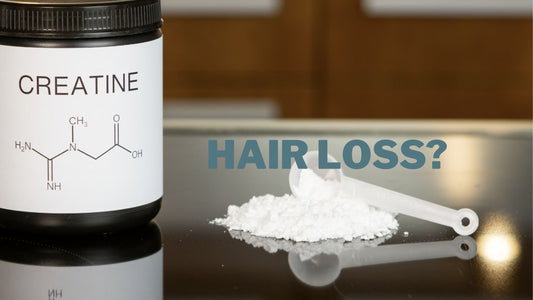In the pursuit of peak performance and optimal recovery, pre and post-workout powders have emerged as indispensable tools for athletes and fitness enthusiasts alike. These specialized formulations are meticulously crafted to deliver a targeted blend of nutrients and compounds designed to enhance exercise performance, accelerate recovery, and support overall training goals. In this blog post, we'll explore the features and benefits of pre and post-workout powders, shedding light on their efficacy backed by scientific evidence.
Pre-Workout Powders: Igniting Performance
-
Increased Energy and Focus: Pre-workout powders often contain ingredients such as caffeine, taurine, and tyrosine, which are known to enhance alertness, mental focus, and energy levels [1]. By priming the central nervous system and reducing perceived exertion, these compounds can help individuals push through challenging workouts with greater intensity and determination.
-
Enhanced Endurance and Performance: Key ingredients like beta-alanine, creatine, and citrulline malate are commonly found in pre-workout formulations due to their ability to increase muscle endurance, delay fatigue, and improve exercise performance [2]. By buffering lactic acid accumulation and promoting ATP production, these supplements allow for sustained power output and prolonged time to exhaustion during intense training sessions.
-
Optimized Nutrient Delivery: Pre-workout powders often include ingredients such as branched-chain amino acids (BCAAs) and electrolytes to support hydration, muscle protein synthesis, and nutrient delivery to working muscles [3]. This ensures that the body is adequately fueled and hydrated before embarking on demanding physical activity, maximizing performance potential and minimizing the risk of dehydration or muscle breakdown.
Post-Workout Powders: Accelerating Recovery
-
Muscle Repair and Growth: Post-workout powders are typically rich in fast-absorbing protein sources like whey protein isolate, along with essential amino acids such as leucine, which play a critical role in muscle repair, recovery, and growth [4]. Consuming protein and amino acids shortly after exercise stimulates muscle protein synthesis, facilitating the repair of micro-tears in muscle fibers induced by training and promoting hypertrophy over time.
-
Reduced Muscle Soreness and Inflammation: Ingredients like tart cherry extract, turmeric, and bromelain found in post-workout powders possess potent anti-inflammatory and antioxidant properties, which can help alleviate muscle soreness, reduce exercise-induced inflammation, and accelerate the recovery process [5]. By mitigating oxidative stress and promoting cellular repair mechanisms, these compounds aid in restoring muscle function and minimizing post-exercise discomfort.
-
Replenished Glycogen Stores: Carbohydrates are a crucial component of post-workout nutrition, as they replenish depleted glycogen stores and provide the necessary energy for muscle recovery and repair [6]. Post-workout powders often contain rapidly digestible carbohydrates like dextrose or maltodextrin, which facilitate glycogen resynthesis and promote an anabolic environment conducive to muscle recovery and growth.
In conclusion, pre and post-workout powders offer a strategic and convenient means of optimizing exercise performance and facilitating recovery in individuals striving to achieve their fitness goals. By harnessing the synergistic effects of carefully selected ingredients backed by scientific research, these supplements empower athletes and fitness enthusiasts to train harder, recover faster, and unlock their full potential.
References:
- Goldstein, E. R., Ziegenfuss, T., Kalman, D., Kreider, R., Campbell, B., Wilborn, C., ... & Wildman, R. (2010). International society of sports nutrition position stand: caffeine and performance. Journal of the International Society of Sports Nutrition, 7(1), 5.
- Smith, A. E., Walter, A. A., Graef, J. L., Kendall, K. L., Moon, J. R., Lockwood, C. M., ... & Stout, J. R. (2009). Effects of β-alanine supplementation and high-intensity interval training on endurance performance and body composition in men; a double-blind trial. Journal of the International Society of Sports Nutrition, 6(1), 5.
- Kerksick, C. M., Wilborn, C. D., Roberts, M. D., Smith-Ryan, A., Kleiner, S. M., Jäger, R., ... & Kreider, R. B. (2018). ISSN exercise & sports nutrition review update: research & recommendations. Journal of the International Society of Sports Nutrition, 15(1), 38.
- Phillips, S. M., & Van Loon, L. J. (2011). Dietary protein for athletes: from requirements to optimum adaptation. Journal of sports sciences, 29(sup1), S29-S38.
- Connolly, D. A., McHugh, M. P., Padilla-Zakour, O. I., Carlson, L., & Sayers, S. P. (2006). Efficacy of a tart cherry juice blend in preventing the symptoms of muscle damage. British journal of sports medicine, 40(8), 679-683.
- Jentjens, R. L., & Jeukendrup, A. E. (2003). Determinants of post-exercise glycogen synthesis during short-term recovery. Sports Medicine, 33(2), 117-144.


